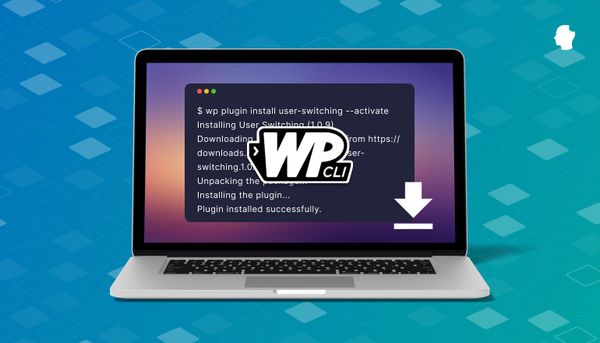DE{CODE} 2025: The Virtual Event for Developers, Agencies, and Marketers in WordPress
Picture this: A single day where the brightest minds in WordPress development converge to crack the code on AI-driven workflows, headless architectures, and performance magic. That’s DE{CODE} 2025, WP Engine’s… Read more
Why Agencies Use Low-Code Tools
Architects can draw up plans by hand, but they’re more likely to use CAD software to realize their version faster, with less expense, and no sacrifice in quality. In a… Read more
Delicious Brain Bytes: DE{CODE} 2025 and ACF’s New Guides
In this issue of Delicious Brain Bytes, we look into DE{CODE} 2025, discuss the release of the first beta for WordPress, and much more! Registration Open for DE{CODE} 2025 DE{CODE}… Read more
Creating a WordPress Plugin With Cursor
AI-powered coding tools have been around for some time, but Cursor has been getting a lot of press recently. While other tools often focus on code completion, Cursor allows natural… Read more
Using ARIA Roles for Accessibility in WordPress
One way to enhance the accessibility of your WordPress projects is with ARIA roles, attributes added to HTML elements to provide semantic meaning and improve accessibility for users of assistive… Read more
Optimizing WordPress for Core Web Vitals
Google’s Core Web Vitals are crucial for SEO, but that’s not the whole story, as good Core Web Vitals scores typically mean a better user experience as well. In this… Read more
Delicious Brain Bytes: Upcoming Releases and WordPress Accessibility Day
In this issue of Delicious Brain Bytes, we look into upcoming WordPress releases, the results of the 2024 WP Awards, and much more! Upcoming WordPress Releases WordPress 6.7.2 is scheduled… Read more
Best Practices for WordPress Themes in 2025
WordPress is one of the most popular content management systems (CMS) in the world, powering over 40% of all websites on the internet. Its flexibility, customizability, and vast ecosystem of… Read more
SQL Query Optimization for Faster WordPress Sites
A fast site means happier users, improved ranking from Google, and increased conversions. Maybe you even think your WordPress sites are as fast as they can be – you’ve looked… Read more
WordPress Accessibility Plugins for Inclusive Web Design
Accessibility is a critical component of creating inclusive and user-friendly digital environments. Ensuring websites you build are accessible is not just a moral and ethical imperative, but often a legal… Read more
Delicious Brain Bytes: WordPress Release Schedule, PressConf, and the Advent of Code
In this issue of Delicious Brain Bytes, we dive into the 2025 WordPress release schedule, peek at an advent calendar (for code), look ahead at the upcoming PressConf event, and… Read more
The Best WordPress Backup Plugins for 2025
Backing up your site is a little like buying fire insurance. You never need it outside of a catastrophe, but not having it is just going to make the catastrophe… Read more
5 Ways to Create a WordPress Plugin Settings Page
The extensibility of WordPress has always been one of its strong points. Not only are there thousands of plugins available, you can build your own. At some point, you might… Read more
How to Boost WordPress Performance with NitroPack
The performance of a WordPress site is crucial for providing a seamless user experience and optimizing SEO. There’s a lot you can do to boost Core Web Vitals by fine-tuning… Read more
Delicious Brain Bytes: Trends and Insights From the 2024 ACF User Survey
In this issue of Delicious Brain Bytes, we look into the upcoming release of WordPress 6.7, the results of the 2024 ACF survey, and much more! Template Registration API Coming… Read more
The Complete Guide to Installing WP-CLI
The WordPress command line interface (WP-CLI) is a powerful WordPress-developer focused tool. We use it to help us write tests, manage changes to site databases, and we even have WP-CLI… Read more
What I Learned at WordPress Accessibility Day 2024
WordPress Accessibility Day is a 24-hour global event dedicated to accessibility best practices, specifically for WordPress websites. Started in 2020 by the WordPress core Accessibility Team, this event has since… Read more
Delicious Brain Bytes: WordPress 6.7 Now in Beta Release
In this issue of Delicious Brain Bytes, we dive into the first beta release for WordPress 6.7, WordPress Accessibility Day, and much more! WordPress 6.7 Beta 1 Now Available for… Read more
Golden Guides and Hidden Gems From the WordPress Developer Blog
The WordPress Developer Blog is a treasure trove of valuable resources that can help you stay ahead of the curve. In this article, we take a look at some of… Read more
7 Awesome Add-ons for Advanced Custom Fields
Advanced Custom Fields (ACF) is a powerhouse plugin, allowing developers greater control over content modeling. Many of its users find it an indispensable tool for managing and displaying structured data.… Read more
Delicious Brain Bytes: New Ways to Learn WordPress
In this issue of Delicious Brain Bytes, we look at the recently launched WordPress Learning Pathways, WP-CLI’s new release, WordPress Accessibility Day, and much more! Pick a Path, Any Path… Read more
Syncing WordPress Database Changes Between Environments: How We Handle Merging
Database synchronization is a problem that still gets raised almost every month in the local WordPress communities I’m part of – “if I am making changes to my local site,… Read more
Delicious Brain Bytes: WordPress 6.6 RC2 Ready for Testing, ACF Annual User Survey Now Open
In this issue of Delicious Brain Bytes, we look at the recent release of WP Offload SES 1.7, the opening of the annual ACF user survey, and much more! WordPress… Read more
WP Offload SES 1.7 Released: Enqueue Only Mode and Improvements for High-Volume Senders
WP Offload SES 1.7 adds a new “Enqueue Only” mode that can be used to prevent sending accidental emails in development and staging environments or to temporarily pause all emails… Read more










